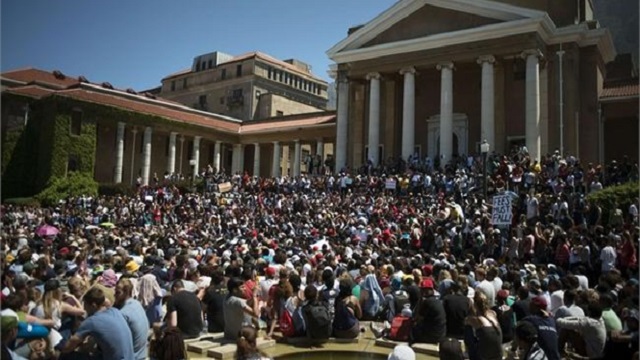
In a recent opinion piece in the Business Day newspaper, author and academic Jonny Steinberg suggested that a “generational estrangement deeper than we have acknowledged” had emerged between the Fees Must Fall generation - those who've led protests against high university tuition fees and higher education structures they say are unjust - and their “scorn for almost everyone over the age of 40”.
At times over the past two years it may have seemed that a generation had emerged on South Africa’s campuses that has disowned the past. But generational rebellion is an enduring feature of all societies. Indeed, it’s the dynamic through which societies renew themselves and move forward.
Reflecting on more than 40 years of teaching three generations of University of Witwatersrand (Wits) students – incidentally, Steinberg was among them – I couldn’t help observing how each generation developed a distinct self consciousness; a world view. Each generation was shaped by particular political icons and engaged in particular forms of political action.
Repression and state violence
The first generation, the Soweto generation, looked for theories of radical – even revolutionary – change. The central figure was Karl Marx, whether students chose to reject him and go in a different direction or to adopt one or other of the intellectual currents that had their source in Marx. These included Antonio Gramsci, Leon Trotsky, Ernest Laclau, Vladimir Lenin and so on.
In 1981 half of the students in my honours class in industrial sociology were held under the Terrorism Act. Some were detained for months without trial. It was the time of the United Democratic Front; of trade union militancy and nationwide resistance to apartheid.
But it was also a time of repression, of state violence – even assassination. The assassination of David Webster, a colleague in the department of anthropology, was a dramatic illustration of those times.
The release of Nelson Mandela in 1990 and 1994’s new democratic government was an event that profoundly changed the classroom. This, the 1994 generation, was quite different from those who’d come before.
Decolonisation of knowledge
For many, the classroom was an opportunity to escape the poverty and political turmoil of the townships for a career in a transformed public sector or the private sector. But they were rebels too. I recall students occupying the administrative building and trashing the campus in support of their demands for the transformation of Wits. Indeed, one of the demands was for free education.
By the end of the first decade of the 21st century, around 2009, I sensed a new assertive spirit in the corridors of the humanities faculty at Wits. A new generation was in the making, a third generation. It was to culminate in the Fees Must Fall movement of 2015 and 2016.
In February 2016 I was in discussions with my new, black female Masters interns about what they wanted to research for their theses. They announced: “We are tired of white people studying blacks; we want to study whites.” This generation had found its voice and the language to express their feelings of discomfort and sense of racial injustice in a world where knowledge production is still dominated by whites.
The decolonisation of knowledge was their aim. Post-colonial theory was their guide. Edward Said and Frantz Fanon, and African intellectuals such as Steve Biko and Ngugi Wa’ Thiongo were now the key theorists.
What’s striking about this, the third generation, is the leading role played by black female students. Black feminism, the black body and sexuality become the dominant discourse of this generation. This third generation had found its voice. They were now comfortable in their skin and proud of their identity.
The teacher student relationship – what I call the chalk face – is a crucial interface between the generations. It’s here that academic generations are made. A central demand of the current generation of students is the need to recognise their dignity, their material needs, their distinct family and cultural backgrounds, and of course their language.
Discovering a new mission
But the generational rebellion that Steinberg refers to is not simply about the need for better communication.
It’s a demand that goes back many generations. Indeed it was a demand made by Pan African Congress founder Robert Sobukwe when he was a tutor at Wits nearly 60 years ago.
It’s a demand to change the content of the curriculum so that South Africans, especially black men and women from all over Africa, can become the producers of knowledge.
To rebuild trust and mutual respect between the generations we need to make our classrooms places where our students are not only the consumers of knowledge produced elsewhere. This is the challenge for the graduating class of 2016. In the memorable words of Fanon:
"Each generation must discover its mission, fulfil it or betray it."
Your mission is to become the authors of the books the next generation of students read; the articles they cite and the theories that shape their thinking.
This is an edited extract of the author’s speech on the occasion of being awarded an honorary doctorate from the University of the Witwatersrand.![]()
